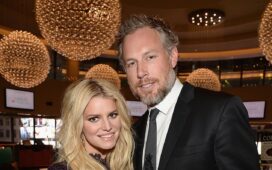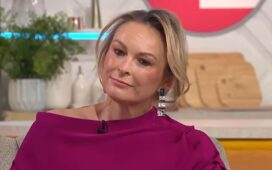 Getty Images
Getty ImagesDrake has scrapped a legal case against Universal Music and Spotify, in which he accused the companies of conspiring to boost the streams of Kendrick Lamar’s diss track against him, Not Like Us.
The Canadian star took action last November, alleging that the music companies had used bots, payola and other methods to promote Lamar’s song, which accused him of paedophilia.
“The record-shattering spread of Not Like Us on streaming, sales, and radio play was deliberate and appears to have relied upon irregular and inappropriate business practices,” court documents alleged.
However, on Tuesday, Drake’s lawyers voluntarily withdrew a pre-action filing, effectively ending the case.
According to court documents filed in New York, the star met with representatives of Spotify and Universal on Tuesday to discuss the case.
Spotify, which had filed an opposition, had no objection to the withdrawal and discontinuance. Universal, which hadn’t filed an opposition, reserved its position.
A related case, filed against Universal and radio network iHeartRadio in Texas, is still active.
Not Like Us was widely regarded as the decisive blow in a long-running feud between Drake and Lamar, which dates back to the early 2010s.
In the lyrics, Lamar alleges that Drake “likes ’em young” and accuses him of using other, more credible rappers, to boost his profile.
Around 24 hours later, Drake responded with a track called The Heart Part 6, where he rejected the allegations, saying, “I never been with no one under age”. He also claimed to have fed Lamar “false” information through a double agent.
However, his retort failed to attract the same attention as Not Like Us, which debuted at number one in the US chart and attracted more than 1 billion streams on Spotify.
Taking to the courts, Drake accused Universal – which distributes both his music and Lamar’s – of artificially boosting the song’s numbers.
In court documents, he claimed that the label licensed the song “at drastically reduced rates to Spotify” and used bots to stream the song, generating “the false impression that the song was more popular than it was in reality”.
 PA Media
PA MediaThe papers were not a lawsuit, but a “pre-action petition”, in which Drake’s lawyers sought to gain access to internal documents at Spotify and Universal which might have supported their case.
In a statement at the time, Universal told the BBC: “The suggestion that [the company] would do anything to undermine any of its artists is offensive and untrue.
“We employ the highest ethical practices in our marketing and promotional campaigns. No amount of contrived and absurd legal arguments in this pre-action submission can mask the fact that fans choose the music they want to hear.”
Spotify also responded that there was “no economic incentive for users to stream Not Like Us over any of Drake’s tracks”.
The Swedish streaming company later filed an opposition brief to Drake’s petition, stating that it “should be denied”.
Reputational damage
Music industry experts had been sceptical that the accusations would ever reach trial.
Some suggested that Drake was using the court to leverage Universal for information that could allow him to potentially sue for a breach of contract and get out of his deal.
But entertainment lawyer Kevin Casini said the proposed legal action could do Drake’s reputation more harm than good.
The media coverage “really only serves to bring more attention to the lyrics that Drake finds offensive or objectionable,” he told Rolling Stone magazine.
“And I think the streaming numbers for the song will just go up again.”














